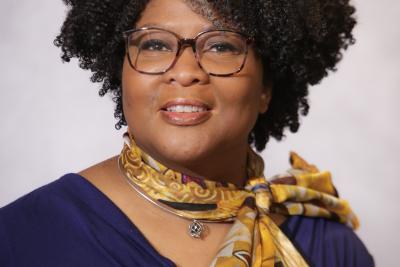SAMBAI
Led by Dr Melissa Davis (Morehouse School of Medicine, USA).The challenge
Tackling the cancer inequities challenge since 2024, team SAMBAI (Social, Ancestry, Molecular and Biological Analysis of Inequalities) is striving to decode the factors that cause and influence disparate cancer outcomes in underserved populations of African descent.
Inequities in cancer prevention, screening and treatment lead to disparities in cancer incidence and mortality and are major public-health challenges. Because the relative impact of the different drivers of cancer in these populations remain unclear, approaches aimed at reducing inequities remain inadequate. The team aims to combine social determinants of health with genomics, immune profiling, and exposomics to tackle cancer inequities at an unprecedented scale. Their goal is to identify the underlying causes leading to disparate outcomes – and use this knowledge to drive much-needed change.
Why cancer inequities?
Hear Professor Melissa Davis, team lead of SAMBAI, discuss their approach to the cancer inequities challenge - and why addressing it is so important.At a glance
Team and leadership
SAMBAI is led by:
The team is a multidisciplinary group of researchers at institutions across the UK, US and Africa. As well as additional collaborations providing samples in Kenya, Ghana and Nigeria. The team brings together experts in computational biology, epidemiology, exposomics, genomics and immunology, with dedicated patient advocates.
Tackling the cancer inequities challenge
Team SAMBAI is taking a multi-level, interdisciplinary approach to create the SAMBAI Data Repository for Cancer Equity Research. This key resource will be unprecedented in scale and scope, collecting samples and data from 40,000 people from multiple African countries, as well as people of recent African heritage in the UK and US. By capturing millions of data features for each individual, this database will allow the dissection of the complex interplay of the social, environmental, genetic, epigenetic and immunological factors that influence disparate outcomes in cancer in these underserved populations. It’s important to acknowledge that the vast majority of genomics and tumour profiling data collected to date is from people of European ancestry. SAMBAI’s repository will be the first dataset encompassing this breadth of information for populations of African descent, led in partnership with African co-investigators. Working in Ghana and South Africa, as well as other countries throughout the continent, SAMBAI will build research and training capacity, in addition to establishing new approaches to investigate cancer inequities in other underserved populations.
The team will focus on breast, pancreatic and prostate cancers – three cancer types that have a disproportionately higher rate of aggressive tumour grade and early onset in Black people. SAMBAI’s comprehensive and systematic approach spans four levels of data:
Social determinants of health
The team aims to reset the way that social determinants of health are measured, to accurately document the lived experience of Black people.
Social determinants will be assessed across multiple levels using qualitative and quantitative metrics, including individual and lifestyle behaviours; socio-cultural experiences, such as social interactions, social support, caregiving roles and encounters of racism; characteristics of the immediate environment, including housing quality, neighbourhood safety and access to healthy food; and structural-political determinants, such as government policies, laws, economic and healthcare systems, and employment opportunities.
Exposomics
To understand the biological consequences of the lived environment on health and disease, the team plans to measure and quantify, on a molecular scale, the external and internal factors that these populations are exposed to (the exposome). Using high-resolution mass spectrometry, the team will collect data on thousands of exogenous and endogenous molecules to identify risk factors relevant to these populations.
Genomics
Using short- and long-read whole-genome and RNA sequencing, the team aims to map the genetic diversity in select populations in the UK, US, and several regions of Africa to identify distinct genetic factors contributing to cancer inequities. The team will also look at epigenetics and use single-cell proteomics to determine whether external exposures based on lived experience have left imprinted epigenetic signatures.
Immune profiling
To explore the role of stress caused by structural racism, discrimination and marginalisation, the team will look at the immune cells and inflammatory proteins present in the circulation, tumours and microenvironment, of a subset of patients, to identify social and environmental mechanisms that influence cancer and systemic immunological profiles.
Looking ahead
By building and using their extensive repository to identify factors underpinning cancer disparities among people of African descent, SAMBAI hopes its findings will inform policies and create opportunities to develop much-needed targeted cancer prevention and treatment strategies. The team’s patient advocates will play an integral role in engaging with patient communities and facilitating policy changes for effective intervention.

Plain language summary
Advances in cancer diagnosis and treatment have not benefited all people across race and ethnic groups. These cancer inequities are a major concern in public health. They occur because some people live in unhealthy environments and have less access to healthcare than others. These social factors can lead to more aggressive cancers and delay diagnosis and treatment. Additionally, the genetics and biology of specific populations may also contribute to inequities. However, these factors have not been equally studied across populations.
The SAMBAI team is dedicated to studying populations of African descent in Africa, the UK and the US. By working with patient communities, the team will gather data on individuals’ social circumstances, environments, genetics and the immune cells within their tumours. The team’s specific focus is on breast, pancreatic and prostate cancers, as these types of cancer are typically more aggressive and are diagnosed at an earlier age in Black individuals.
Through detailed profiles of each participant in their research, SAMBAI aims to determine how genetics, the environment and social factors combine and interact to influence cancer outcomes and disparities within these populations. With this knowledge, the team aspires to develop strategies for cancer prevention and treatment tailored to these specific communities.

